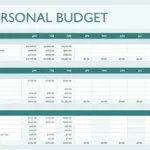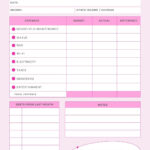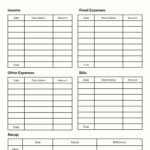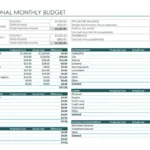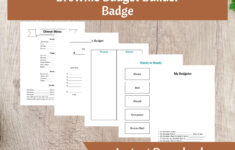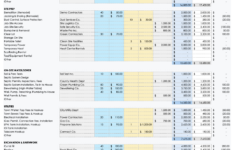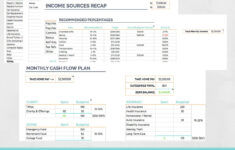Budgeting Worksheets | Making a Personal Budget Worksheet – Budgeting may sound like a daunting task, but with a little creativity and organization, you can easily master your money and take control of your finances. One of the most effective tools for managing your cash flow is creating a budget worksheet. A budget worksheet helps you track your income and expenses, identify areas where you can cut back, and plan for future financial goals. In this article, we will explore the basics of budget worksheet creation and share some creative tips to help you craft a budget that works for you.
“https://budgeting-worksheets.com/wp-content/uploads/2025/09/free-budget-templates-microsoft-create-with-making-a-personal-budget-worksheet.webp” alt=”Free Budget Templates | Microsoft Create with Making a Personal Budget Worksheet”]
Mastering Your Money: Budget Worksheet Basics
To create a budget worksheet, start by listing all of your sources of income, including your salary, side hustles, and any other money you receive regularly. Next, list all of your expenses, such as rent/mortgage, utilities, groceries, entertainment, and savings. Be sure to include both fixed expenses (those that stay the same each month) and variable expenses (those that fluctuate). Once you have a clear picture of your income and expenses, subtract your expenses from your income to determine your net cash flow. This will show you whether you are living within your means or overspending.
When creating a budget worksheet, it’s important to be realistic about your spending habits and financial goals. Don’t forget to account for occasional expenses like birthdays, holidays, and vacations. One creative tip for managing your cash flow is to color-code your expenses based on categories (e.g., red for necessities, green for discretionary spending) to visually see where your money is going. You can also set up automatic transfers to your savings account each month to ensure you are building your nest egg. By regularly updating and reviewing your budget worksheet, you can stay on top of your finances and make adjustments as needed.
Get Creative with Your Cash Flow: Budget Worksheet Tips
To make budgeting fun and engaging, consider using a budgeting app or online tool that allows you to track your expenses on the go. You can also challenge yourself to find ways to save money each month, whether it’s by meal planning, carpooling, or negotiating lower bills. Another creative tip is to reward yourself for sticking to your budget by setting aside a small amount each month for a treat or splurge. Remember, budgeting is a journey, not a destination, so be patient with yourself and celebrate your progress along the way. With a well-crafted budget worksheet and a positive attitude, you can take control of your cash flow and achieve your financial goals.
Making a Personal Budget Worksheet
“https://budgeting-worksheets.com/wp-content/uploads/2025/09/free-and-customizable-budget-templates-with-regard-to-making-a-personal-budget-worksheet.jpg” alt=”Free And Customizable Budget Templates with regard to Making A Personal Budget Worksheet”]
“https://budgeting-worksheets.com/wp-content/uploads/2025/09/free-and-customizable-budget-templates-within-making-a-personal-budget-worksheet.jpg” alt=”Free And Customizable Budget Templates within Making a Personal Budget Worksheet”]
“https://budgeting-worksheets.com/wp-content/uploads/2025/09/free-budget-templates-microsoft-create-inside-making-a-personal-budget-worksheet.webp” alt=”Free Budget Templates | Microsoft Create inside Making A Personal Budget Worksheet”]
Budgeting Worksheets…
Copyright Disclaimer: The rights to all images displayed belong to their original owners. Contact us for attribution or removal if necessary.
